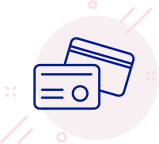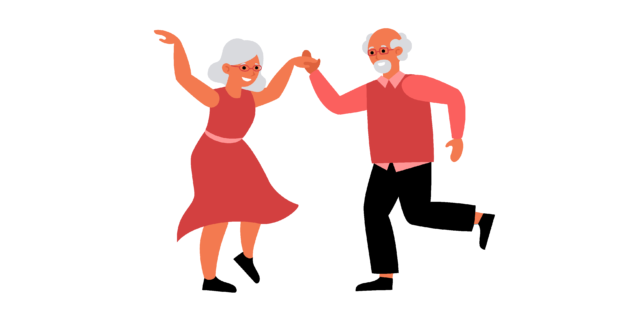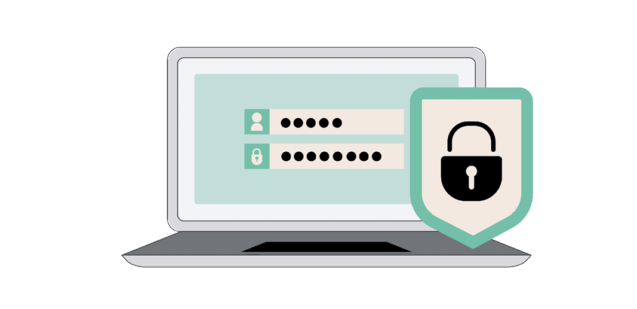

Everyone overspends and makes other personal finance mistakes from time-to-time, especially when feeling stressed and overwhelmed. Of course, spending too much and taking on more debt makes you feel more stressed and more overwhelmed — and the cycle continues.
These are seven of the most common personal finance mistakes that people make. Knowing these mistakes can help you avoid them!
1. Living on Credit Cards
A low-interest credit card is a fantastic tool to have at your disposal for emergencies and to improve and stabilize your credit. There’s nothing wrong with putting a large purchase on a credit card and paying it off within the introductory period or using a credit card to splurge once in awhile and paying it off within the grace period. In fact, we write a lot about how to use credit cards responsibly.
2. Buying Too Much Car
It’s nearly impossible to save and get ahead if you’re paying too much for necessities such as food and transportation. Unfortunately, many people make the mistake of spending too much on their car, especially when they’re young. Even worse, many pay too much for their auto financing by getting funding for their new car purchase at the dealership.
3. Buying Too Much House
There’s a term for this phenomenon. House poor. Buying a house that is bigger than you need, and more than you can really afford, is one of the fastest ways to end up financially unstable. It’s also an incredibly common mistake. Did you know that the average home today is over 1,000-square-feet larger than the average home in 1973 — and that living space per person has doubled?
Of course, buying too much house isn’t only about your mortgage payment. Even if you get a great deal on a house that is too large for your needs, you still have to consider the associated costs. Taxes, utilities, maintenance, and stuff to fill the house all take a toll on your budget. It’s no wonder there’s a tiny house movement afoot. Our suggestion: stick to the middle. Buy a moderate house in the safest, best neighborhood you can afford, build equity, and use your savings to launch a career, pay down other debt, or spend time traveling.
4. Tapping Into Home Equity Unnecessarily
Taking out a low-interest home equity loan or home equity line of credit can be a smart money move — if you’re consolidating debt, using it as a low-interest emergency fund, or even using the money to make home improvements that will increase your home value in a seller’s market. For example, housing prices in Greenville, SC and surrounding areas are steadily rising and the market is strong, so taking out a home equity line to make improvements before putting your home up for sale could increase your sales price significantly.
However, if you’re using your home equity as your own personal piggy bank, you need to break that habit immediately. Not only are you putting your most valuable asset at risk, you’re also paying interest on things you don’t need and virtually ensuring that you won’t recoup the full value of your home when it’s time to sell.
5. Failing to Save — and Failing to Start Young Enough
According to recent surveys, most Americans save less than 5% of each paycheck, and over 50% of households have less than $1,000 in savings. A lack of emergency funds can increase the chance you will be living paycheck to paycheck.
6. Taking on Too Much
We live in a very convenient, inter-connected time. While it may make sense to sign up for certain activities, keep your kids busy, or put your life on autopilot using subscriptions, these costs can add up quickly. If you’re feeling the pinch in your budget or running out of money before you run out of month, take a second look at your activities and subscriptions.
How many extracurriculars do the kids really need to be in? Perhaps they’re feeling just as stressed as you are and could use more downtime. If you or your child don’t want to cut back on an activity, is there a less expensive or even free version that would provide the same benefits? What money is being auto-drafted from your account every month? Take a good look at your cable bill, your cell phone bill, and your internet. Goods and services subscriptions are adept at getting people to sign up for recurring costs and fees — that leave customers in debt and owning nothing after paying for years.
7. Taking on Too Little
Tackling your personal finance mistakes isn’t only about cutting extras. Getting out of the paycheck to paycheck cycle may actually require you to take on a bit more debt at first — or take on more responsibility.
Just like taking on too much can feel overwhelming, taking on too little can cause you to miss golden opportunities and short-change yourself. Not all debt is bad. In general, we advise taking on a reasonable amount of debt that enables you to finish your education, live in a safe home, or launch your business. In other words, don’t be afraid to invest enough in your own personal growth and development.
Overall, most personal finance mistakes boil down to one thing: ignoring the cumulative effects of seemingly small, everyday decisions. While there are a couple of large purchasing decisions on this list, such as which house or car you buy, the rest of these common mistakes are much more subtle.
This material is for educational purposes only and is not intended to provide specific advice or recommendations for any individual.



